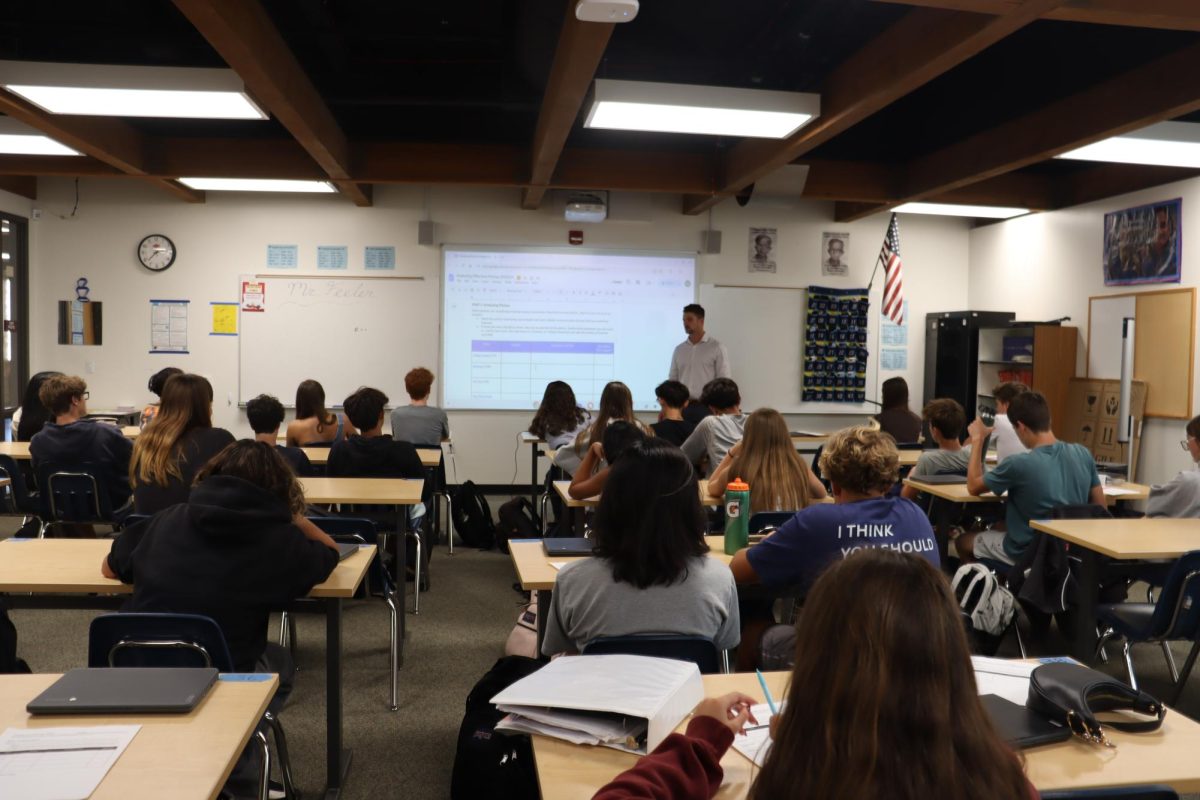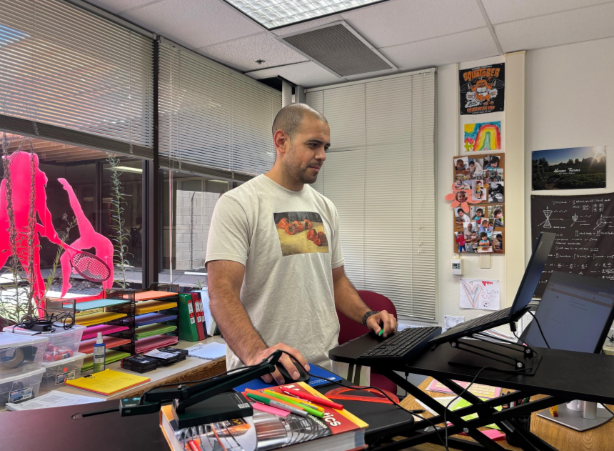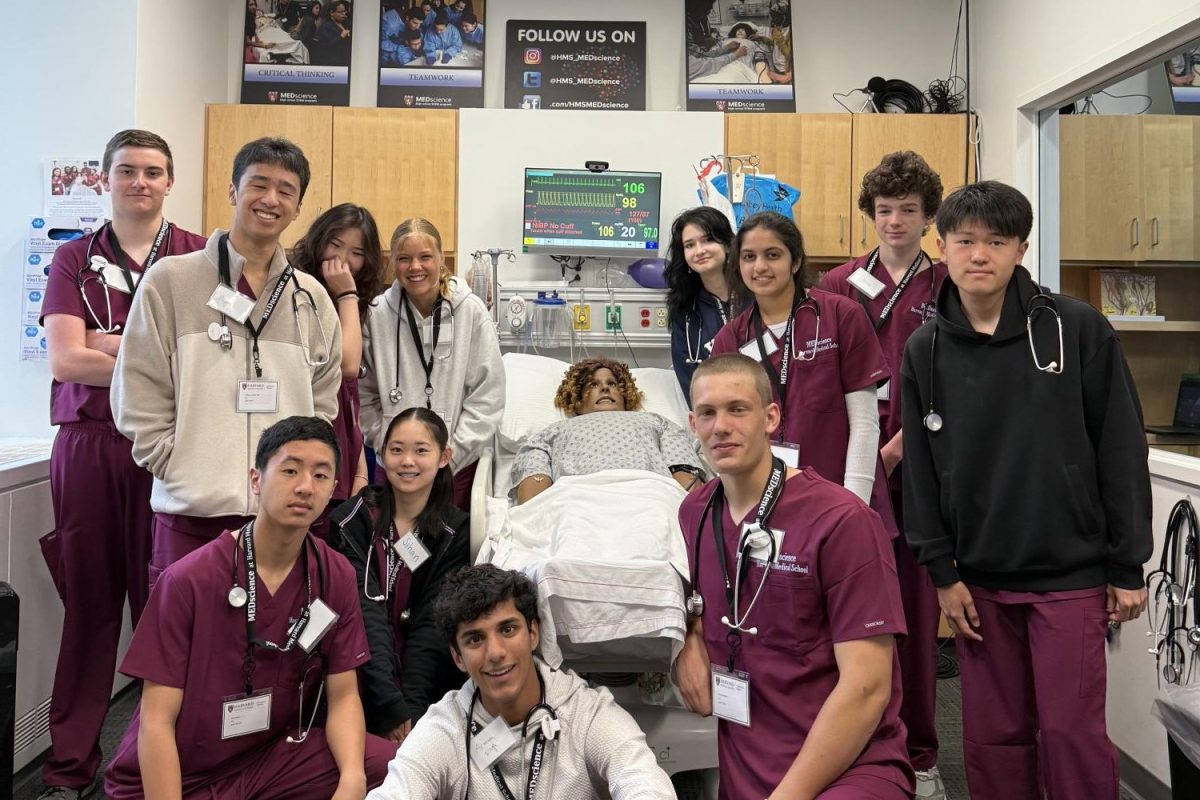For many siblings, growing up together means sharing secrets, inside jokes and everyday memories. But as high school and college pull their bond in different directions, the distance can feel more like just miles on a map. For these families, quiet spaces once filled with shared laughter and holiday cheer around this time of year can suddenly seem empty as siblings strive to connect across time zones.
Bebe Neustadt (10) is one student whose life was affected when her brother Nate Neustadt, a freshman at George Washington University, began his academic journey in Washington D.C. For Bebe, adjusting to her best friend’s absence was a sudden change to comprehend.

“[Nate leaving] was really hard,” Bebe said. “During the summers, he would intern in Israel. He also traveled a lot for work while he was in high school, so it was a lot of preparation and getting used to it little by little, but I didn’t expect it to be so different now. Ultimately, I feel like we’ve kind of gotten closer with him leaving. We talk every day, we text a lot, so I think it did make us closer, but I definitely miss him so much.”
In contrast to Bebe, Ayla Tang (10) was indifferent to her sister, Somie Tang (‘24), leaving for the University of British Columbia in Canada this past year.
“I thought I’d be really sad, but I’m actually not that sad,” Ayla said. “I feel like the anticipation of her leaving is more sad than her actually leaving. Now that I’m alone it’s sad, but at the same time I get a lot of things to myself.”
While students may have differing attitudes toward their siblings leaving, undergoing a lifestyle change like this is not exclusive to current high school students. Former football coach and English 10 and English 12 teacher Robert Collins grew up with three other siblings, all of whom were older than him in successions of three-year increments: Jackie (older by three years), Teddy (older by six years) and Carolyn (older by nine years).
“Obviously, I missed them a lot when they went away, especially my brother Teddy, because we shared a room growing up … so when he left, that was certainly different,” Collins said. “But it was cool at this time of year, during Thanksgiving or Christmas, when they would all come home, and it certainly made the holidays more special.”
No matter how one may feel about their brother’s or sister’s absence, being away from home during the holidays can be a challenge. According to Bebe, the upcoming season will expose how much her family dynamic changed.
“We celebrate Hanukkah since we’re Jewish, and my brother’s always been very connected to our religion,” Neustadt said. “We used to call him ‘Rabbi’ when he was younger, because he was just the most devoted out of all of us. And so he used to light the menorah and do the gifts and dreidel and all that stuff. And so this year, having him not be home, I’m gonna have to do it, and it’s just gonna feel really weird.”
For Ayla, staying in touch during all holidays is also greatly important, despite the time of year. For that reason, she seeks to communicate with Somie whenever possible.
“We FaceTime a lot,” Ayla said. “I don’t know about my other family members, but me and her, we do because we’re pretty close. On birthdays and stuff, we’ll FaceTime and sing together.”
Collins agreed with the sentiment, acknowledging that staying in touch with his siblings, namely Teddy, allowed him to feel overall more connected with his family.
“I would instant message with my brother a lot, so we would do that a lot, just on weeknights, like he’d be doing his homework and I would be doing mine,” Collins said. “I certainly stayed in touch a lot more with my brother, just because we shared a room.”

Although conversing over messaging or calls is certainly the easiest way to communicate with family long-distance, taking up particular activities is another way for siblings to bond. Noor Twainy (12), a student whose sister attends the University of Washington, specifically sets aside time to spend time with her while she is away.
“Aya always shares her cooking with me,” Noor said. “When you’re in college, you have to cook for yourself most of the time. So she’s just learning how to cook better.”
Even though these younger students may experience loneliness while their siblings explore their new lives in the real world, it is plausible that older siblings may be facing homesickness of their own.
“Somie definitely wants to come back,” Ayla said. “I don’t think it’s like a family thing, but more like she misses the environment. It’s definitely, really cold in Canada, and she’s not used to it at all, so she likes coming here a lot more than there.”
For Bebe’s sibling, it is quite the opposite.
“My brother is not necessarily the typical college student — he calls my mom almost every day,” Bebe said. “You always hear people being like, ‘Oh, well, they’re not gonna talk to you like, you gotta let them do their own thing.’ No. He calls my mom almost every day, asks her for advice still, so I think that has helped a lot. And then my dad, he also calls a lot. He has stayed in contact with all of us quite a bit, so I think that’s what’s made the biggest difference in us not feeling too distant.”
Adapting to lifestyles without the people closest to us takes time. No matter what kind of relationship siblings may have, Bebe’s experience with her brother displays the heightened sense of appreciation that comes with distance and time.
“As siblings do, we didn’t work as close when we were younger and we’d fight a lot, and then when he started traveling, I think we both started to appreciate each other more because we had that short time together,” Bebe said. “I think we just learned to appreciate those moments that we did have together a little bit more, especially because now we never see each other.”
As someone who went through the process of dropping his siblings off at college three times over, Collins understands the feelings of separation students may have.
“I guarantee you that their sibling is feeling the same way,” Collins said. “So just texting them, calling them, whatever kids do these days and however they communicate, just reach out and say, ‘I miss you.’”









